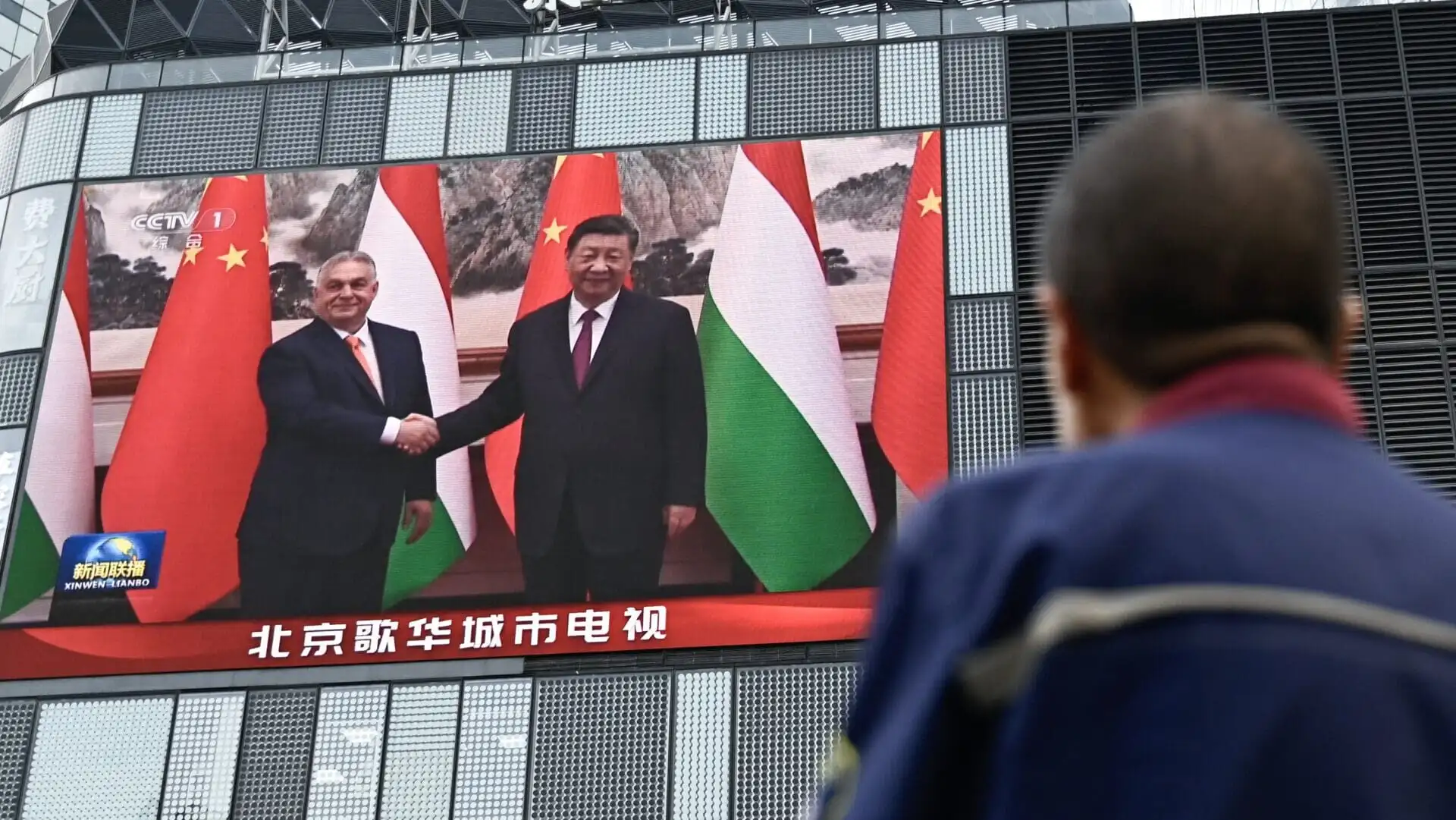Analysis
Brayan Milla Lostaunau
Viktor Orban's 'peace mission'
- Viktor Orbán's ‘peace mission’: A diplomatic journey shaking the European Union

On Monday, July 8, 2024, Hungarian Prime Minister Viktor Orbán made a surprise visit to Beijing to meet with Chinese President Xi Jinping. During this meeting, both leaders agreed to find a peaceful response to end the war in Ukraine, as well as to reject Western sanctions against Russia. Recently, the Hungarian leader also met with Ukrainian President Volodymir Zelensky and Russian President Vladimir Putin. This latter meeting sparked criticism from European Union authorities.
The Controversial Journey of Viktor Orbán
In early July, Viktor Orbán assumed the rotating presidency of the European Union Council. Despite his latent opposition to the Union and his closeness to Russia, the Hungarian leader took on this role with the purpose of "shaking up the power structures imposed from Brussels". From the outset, the Hungarian minister opposed European restrictions on Russia and the EU's support for Ukraine. Therefore, just days after taking office, he made a series of visits to world leaders as part of his "peace mission," aimed at finding possible peace agreements in Ukraine.
On July 2, Viktor Orbán traveled to Kiev to meet with Ukrainian President Volodymir Zelensky. On this occasion, he urged Ukraine to quickly "ceasefire" to reach a peace agreement with Russia. He also questioned Kiev's initiative to join the European Union, as well as the conditions Zelensky has for reaching an agreement with Moscow. For his part, the Ukrainian president expressed his willingness to reach a peace agreement, stating that he expects Hungary to participate in a Second Peace Summit. Finally, Zelensky announced that he would send Moscow a roadmap to end the war, after receiving support from the international community.
A few days later, on July 5, Minister Orbán was received in Moscow by President Vladimir Putin. During this meeting, Putin emphasized that he is not seeking a simple "ceasefire," but a definitive solution to the conflict. Therefore, he highlighted the fulfillment of some conditions that could be discussed within the framework of a possible "joint work." Moscow demands the withdrawal of Ukrainian troops from Russian territory. Similarly, it maintains a stance against a possible accession of Ukraine to NATO, despite Zelensky's rejection. Finally, Putin praised Viktor Orbán's work as President of the EU Council and as a "mediator" in the war conflict.
This visit to the Kremlin generated rejection from the members of the European Union. Orbán is the first EU leader to visit Russia since the war began in 2022. Various European institutions have pointed out that the Hungarian Prime Minister has acted outside his competences as President of the Council. In that sense, they have emphasized his stance against Moscow. In response, Viktor Orbán criticized the EU's stance, stating that peace agreements cannot be made solely from "an office in Brussels". For this reason, he stated that he will continue with these visits to reach a peace agreement in Ukraine.
On July 8, Viktor Orbán surprised with a visit to Beijing to meet with Chinese President Xi Jinping. Through his account of X, the Hungarian minister described this event as "peace mission 3.0," linking his recent trips to Kiev and Moscow. On this occasion, the Chinese leader stated that the international community must establish conditions for direct dialogue between Russia and Ukraine. In this context, Orbán emphasized the importance of China's power to establish conditions for peace.
Xi Jinping assured that there are no political contradictions or fundamental conflicts of interest between China and the EU. On the contrary, he hopes that Hungary will play an active role in promoting the healthy and stable development of relations between China and the EU and in achieving positive interaction between the two. Regarding the war in Ukraine, Xi Jinping stated that only when major powers show positive energy, rather than negative energy, will this conflict see a glimmer of hope for a ceasefire as soon as possible.
Viktor Orbán: Ally of Peace or Moscow?
Viktor Orbán has been characterized as an antagonistic figure within the European Union. He has constantly questioned the rules passed from Brussels, as, in his view, they violate national sovereignty and restrict Hungary's industrial activity. Therefore, his presidency in the EU Council represents opposition to the Union's strict regulations, as well as to the management of the current President of the European Commission, Ursula Von Der Leyen. On the other hand, Viktor Orbán has been a European ally of Moscow since the war began. In that sense, his support for the Kremlin could have some impact on European sanctions against Russia. Finally, the approach with China could imply greater prominence of the giant in the conflict. Evidently, this could compromise the influence of the West in global affairs. Despite the possible consequences, Viktor Orbán has maintained a stance that challenges the decisions made by European powers in the conflict, as well as being close to the interests of the Kremlin.
Sources
1. DW. (2024, 1 de julio). Hungría asume presidencia de la Unión Europea por seis meses. https://www.dw.com/es/hungr%C3%ADa-asume-presidencia-de-la-uni%C3%B3n-europea-por-seis-meses/a-69532362#:~:text=La%20Hungr%C3%ADa%20euroesc%C3%A9ptica%20del%20primer,ante%20los%20temores%20del%20bloque.
2. France 24. (2024, 2 de julio). Orban pide a Zelenski “considerar un rápido alto el fuego” con Rusia, en visita sorpresa a Kiev. https://www.france24.com/es/europa/20240702-el-h%C3%BAngaro-orban-cr%C3%ADtico-de-la-ayuda-a-ucrania-llega-a-kiev-para-entrevistarse-con-zelenski
3. La Vanguardia (2024, 8 de julio). Orbán trata con Xi sobre la guerra en Ucrania en una visita sorpresa a Pekín. https://www.lavanguardia.com/internacional/20240708/9788596/orban-china-ucrania-xi-jinping-guerra-hungria-ue-presidencia.html
4. RTVE. (2024, 5 de julio). Orbán visita a Putin ante las críticas de los países de la UE y reclama que "Europa necesita paz". https://www.rtve.es/noticias/20240705/orban-visita-rusia-se-reune-con-putin-ante-criticas-paises-union-europea/16175449.shtml

